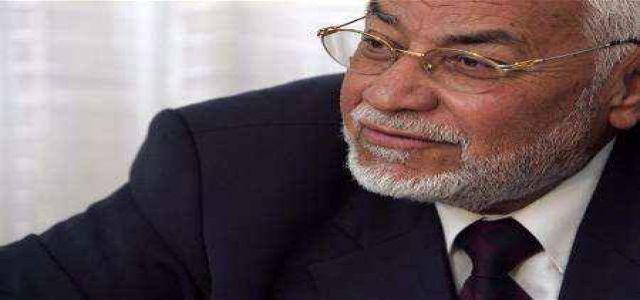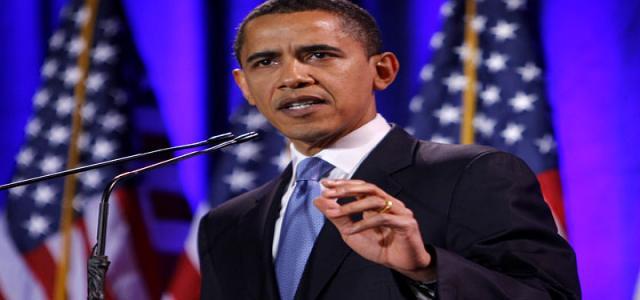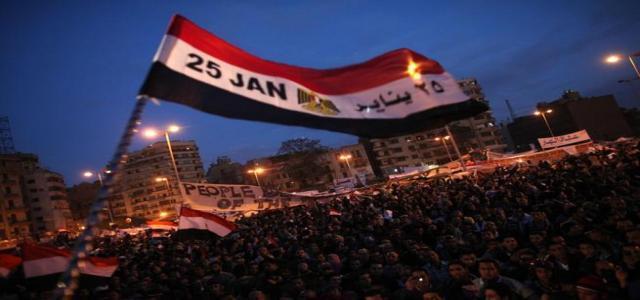- ActivitesIslamic IssuesPolitical Islam Studies
- December 4, 2009
- 14 minutes read
The 500 most influential Muslims of the world?

The Amman, Jordan-based Royal Islamic Strategic Studies Centre in collaboration with the Prince Alwaleed BinTalal Center for Muslim-Christian Understanding at the Georgetown University, Washington DC, has issued a list of 500 most influential Muslims in the world.
The Royal Islamic Strategic Studies Centre is an off shoot of the Royal Aal al-Bayt Institute for Islamic Thought which launched the Amman Message in November 2004 in a bid to reach a broad definition of who is a Muslim. The Amman Message, unanimously approved by Muslim scholars, attempted to describe what Islam is and what it is not, and what actions represent Islam and what actions do not?
http://www.scribd.com/doc/22854716/The-500-Most-Influential-Muslims
To reach a precise definition of who is a Muslim, the Amman Message recognized the validity of all 8 Mathhabs (legal schools) of Sunni, Shi’a and Ibadhi Islam; of traditional Islamic Theology (Ash’arism); of Islamic Mysticism (Sufism), and of ‘true’ Salafi thought. Based upon this definition it forbade takfir (declarations of apostasy) between Muslims. The Amman Message also set forth the subjective and objective preconditions for the issuing of fatwas (Islamic rulings), thereby restricting ‘ignorant and illegitimate edicts in the name of Islam.’
The 500 Most Influential Muslims is an extension of the Amman Message. The Editors of the list have not given any criteria for choosing an influential personality but the list unveils a pattern and agenda behind the selection.
“The 500 Most Influential Muslims in the World” is the title of the 202 pages book that contains the names and introduction of these personalities. The list is Edited and Prepared by Ed Marques and Usra Ghazi. Prof John Esposito and Prof Ibrahim Kalin served as the Chief Editors of the project.
The first chapter of the book sets the tone of the enterprise. The introduction of Islam is taken from the writings of the Italian Muslim scholar, Vincenzo Olivetti, the author of a controversial book: Terror’s Source: The Ideology of Salafism and Its Consequences.
Echoing the Rand Corporation’s arbitrary division of 1.5 billion Muslims into four categories (Fundamentalists, Traditionalists, Modernists and Secularists), the authors divided Muslims into three broad ideological categories i.e. Traditionalists, Moderates and Fundamentalist. Not only that, they also provided a specific percentage of the Muslims belonging to each category. According to the authors, 96% Muslims are Traditionalists, one percent Moderates and three percent Fundamentalists. No source is given for this important and specific data.
The authors describe the Traditional or orthodox Islam, to which 96% Muslims belong, as non-politicized Islam, largely based on consensus of “correct opinion.” The Traditionalist Muslims include the adherents of all the Sunni and Shi‘a sects as well as the Ibadi sect. The followers of Islamic mysticism (Sufism) or mystic brotherhoods are also included in this category.
The Islamic Fundamentalism, to which three percent Muslims adhere, has been described as “highly politicized religious ideology popularized in the 20th century through movements within both the Shi‘a and Sunni branches of Islam—characterized by aggressiveness and a reformist attitude toward traditional Islam.” The authors include in this category the followers of the Muslim Brotherhood or Al Ikhwan Al Muslimeen, Wahabis or Salafis as well as the adherents of the “revolutionary Shi’a ideology” of the late Imam Khomeini of Iran.
Islamic modernism is described as a reform movement that started in the 19th century by politically-minded western-educated Muslims who had “scant knowledge of traditional Islam.” They blamed the technological weakness of the Muslim world on the ‘traditional Islam’ and called for a complete overhaul of Islam, particularly the Islamic law (sharia) and doctrine (aqida).
After setting in the broad outlines of the project the authors divided the 500 personalities into 15 categories: Scholarly, Political, Administrative, Lineage, Preachers, Women, Youth, Philanthropy, Development, Science and Technology, Arts and Culture, Media, Radicals, International Islamic Networks and Issues of the Day.
Let us analyze the first 50 most influential Muslims which are profiled in detail in the list that includes Muslim rulers, two elected leaders, sect leaders, scholars, well-known Muslim religious leaders (Ulema) as well as a lay preacher.
A glance of the list indicates that the authors have political considerations in mind. The first two choices are telling and confirm beyond any doubt this argument. King Abdullah Ben Abdul Aziz tops the list while Grand Ayatollah Hajj Sayyid Ali Khamenei, Supreme Leader of the Islamic Republic of Iran is named as the second top Muslim leader. In this way both top Sunni and Shia political leadership has been accommodated.
At the same time the five other autocratic Muslim rulers are included: King Mohammed VI, King of Morocco, King Abdullah II bin Al Hussein of Jordan, Sultan Qaboos bin Sa’id of Oman, Emir Sheikh Mohammed bin Rashid al Maktoum of Dubai, Sultan Haji Hassanal Bolkiah of Brunei and Sultan Muhammadu Sa’adu Abubakar III of Sokoto.
Only two elected Muslim leaders are included in the list: President Abdullah Gül of Turkey and Prime Minister Recep Tayyip Erdogan of Turkey.
Surprisingly, two Generals also found place in the list: General Mohammad Ali Jafari, Commander of the Iranian Revolutionary Guards and General Sheikh Mohammed bin Zayed al Nahyan, Crown Prince of Abu Dhabi and Deputy Supreme Commander of the UAE Armed Forces.
The three Shia sect leaders included are: Imam Mohammad bin Mohammad al Mansour, Imam of the Zaidis; Prince Karim Aga Khan, the 49th Imam of the Ismailis and Dr Syedna Mohammad Burhannuddin, 52nd Imam of Bohras. The list also names the prominent Shia leader Grand Ayatollah Sayyid Ali Hussein Sistani, Marja of the Hawza, Najaf.
The Barelvi and Sufi leaders: Sheikha Munira Qubeysi, Leader of the Qubeysi Movement of Syria; Sheikh Ahmad Tijani Ali Cisse, Leader of Tijaniyya Sufi Order of West Africa; Sheikh Mehmet Nazim Adil al Qubrusi al Haqqani, Leader of Naqshbandi-Haqqani Sufi Order of Cyprus; Abdullah ‘Aa Gym’ Gymnastiar, Indonesian Naqshbandi Preacher and Professor Sayid Ameen Mian Qaudri, Barelwi Leader and Spiritual Guide of India.
Sunni religious leaders: Sheikh Al Azhar Dr Muhammad Sayyid Tantawi, Grand Sheikh of the Al Azhar University; Mohammad Mahdi Akef, Supreme Guide of the Muslim Brotherhood; Dr Yusuf Qaradawi, Head of the International Union of Muslim Scholars and Hajji Mohammed Abd al Wahhab, Ameer of the Tablighi Jamaat, Pakistan.
Grand Muftis: Sheikh Dr Ali Goma’a, Grand Mufti of Egypt; Sheikh Abdul Aziz Ibn Abdullah Aal al Sheikh, Grand Mufti of Saudi Arabia and Sheikh Professor Dr Mustafa Ceric, Grand Mufti of Bosnia and Herzegovina
Political parties leaders: Seyyed Hasan Nasrallah, Secretary General of Hezbollah (Lebanon); Khaled Mashaal, Leader of Hamas (occupied Gaza); Dr Achmad Hasyim Muzadi, Chairman of Nahdlatul Ulama, the largest socio-religious party Indonesia; Dr M Din Syamsuddin, Chairman of Muhammadiyya, the second largest socio-religious party of Indonesia; Dato’ Haji Nik Abdul Aziz Nik Mat, Religious Guide of the Islamic Party of Malaysia; Maulana Mahmood Madani, Secretary General of Jamiat Ulemae-Hind, India and Motiur Rahman Nizami, Ameer of the Jamaat-e-Islami, Bangladesh.
Muslim scholars: Sheikh Salman al Ouda of Saudi Arabia, Sheikh Dr M Sa’id Ramadan al Bouti of Syria; Sheikh Mohammad Ali al Sabouni of Syria, Sheikh Ahmad Muhammad al Tayeb, President of Al Azhar University Cairo; Pakistan’s Justice Sheikh Muhammad Taqi Usmani, deputy chairman of the International Islamic Fiqh Academy of the Organization of the Islamic Conference; Sheikh Abdullah Bin Bayyah, Deputy-Head of the International Union of Muslim Scholars of Qadrawi; Dr Seyyed Hossein Nasr, Islamic Studies professor at George Washington University, USA and Sheikh Hamza Yusuf Hanson, Founder of Zaytuna Institute, California, USA.
Moderate religious leader/preacher: US-based Hodjaefendi Fethullah Güllen, Turkish Muslim Preacher. London-based Amr Khaled is enlisted as a lay Preacher and Social Activist. Interestingly, once British cabinet secretary and one of Tony Blair’s closest aides Sir Andrew Turnbull, intended to seek Amr Khaled’s aid in furthering the British government’s agenda regarding Muslims.
Abdul Qader Khan, the father of Pakistan’s nuclear program finds a place in the first top 50 personalities. However, in introducing Abdul Qader Khan, the authors have unwittingly borrowed western terminology to describe Pakistan’s nuclear bomb as “Islamic Bomb.” We never hear “Jewish Bomb” for the Israeli nuclear bomb, “Hindu Bomb” for the Indian nuclear bomb, “Confucius Bomb” for the Chinese and “Christian Bomb” for the nuclear bombs of France, Russia, U.K and USA.
The list of the so-called ‘Radical Muslims’ is surprising. It includes Osama Bin Laden and his deputy Ayman al Zawahiri. If Osama Bin Laden is considered as one of the most influential personality then probably he should top the list because of a wide-spread impact of his personality on the Muslim world. Ironically Osama’s half brother, Bakr bin Laden, is honored in the category of Development. Bakr is the chairman of the Saudi Binladin Group, a sizable multinational construction company with operations in Saudi Arabia and over 30 countries — making him an increasingly influential power broker in Saudi business capital.
Among the Muslim political leaders is President Hamid Karzai, who was recently re-elected in a controversial election and whose writ does not extend beyond his presidential palace. Pakistan Army’s Chief of Staff, General Ashfaq Kayani is named as the most influential figure, although now Pakistan has a democratic setup with an elected president and prime minister.
The seven-million strong American Muslim community is delighted to see the names of 71 American Muslims in the list while one of them, Sheikh Hamza Yusuf Hanson, the founder of California-based Zaytuna Institute, is listed in the first 50 most influential Muslims. Many are astonished with this choice since Keith Ellison, the first American Muslim Congressman or President of the Islamic Society of Northern America (ISNA), Ingrid Mattson, are probably the most popular and influential in the American Muslim community. Congressman Keith Ellison is accommodated in the list of political leaders and also listed in the ‘list of Honorable Mentions.’
The officials of three major Muslim civil rights groups – Council on American-Islamic Relations (CAIR), Islamic Society of North America (ISNA) and Muslim Public Affairs Council (MPAC) are included in the list while other major civil rights groups such as American Muslim Alliance (AMA), American Muslim Voice (AMV), Muslim American Society (MAS) and the United Muslims of America (UMA) have been ignored.
The United Muslims of America (UMA) is one of the oldest American Muslim organizations, established in 1982. One of its founding President, Dr. Islam Siddiqui, was appointed by President Clinton as Assistant Secretary of Agriculture and President Obama has appointed him as the Chief Agricultural Negotiator in the US Trade Representative. Ironically in the list of political leaders there are only two entries i.e. Congressman Keith Ellison and Rashad Hussain, who is appointed as the Deputy Associate Counsel to the president by President Barrack Obama.
The American Muslim Alliance (AMA) was established in 1992 with a mission to encourage Muslim participation in political parties and the electoral process. In the 2000 elections the AMA President, Dr. Agha Saeed, played a key role in a bloc Muslim vote to the Republican Party presidential candidate, George Bush. Dr. Saeed is also the Chairman of the American Muslim Taskforce, an umbrella organization comprising 12 major American Muslim civil advocacy groups.
The American Muslim Voice (AMV), headed by Samina Faheem Sundas, is relatively new civil rights/peace group but its grassroots is widely recognized by mainstream civil rights and interfaith and peace groups. The AMV along with over thirty diverse peace partners organized sponsored a vigil and iftar (fast breaking) outside the White House on September 11, 2009, on the 8th anniversary of 9/11 terrorist attacks. This was the first time that any American Muslim group organized such a vigil in Washington DC.
The Muslim American Society (MAS), launched in 1992, is another major American Muslim civil rights group currently led by Mahdi Bray who once served as a liaison with President Bush’s White House Faith-Based Initiative Program. Bray is a National Co-convener of Religions for Peace – USA. He has served on the Board of Directors of the Interfaith Alliance and the National Interfaith Committee for Worker Justice.
The authors of the book have used an arbitrary figure (without giving any source of information) of 4.5 million for the American Muslims while according to a CAIR study of 2000 the American Muslim population is estimated between six and seven million. Based in part on that report, most media organizations, as well as the White House and the State Department, have said that there are at least 6 million Muslims in the country. However, the PEW Research Center’s one million dollar agenda-driven survey of American Muslims in 2007 said that the population of the American Muslim community is no more than 2.35 million. Tellingly the PEW figure is closer to the estimates announced by the American Jewish Committee in October 2001. The AJC study – titled Estimating the Muslim Population in the United States – claimed that the best estimate of Muslims in the United States is 2.8 million at most. The 2007 PEW survey, just like the AJC report, was another desperate attempt to discount the role and undercut the influence of American Muslims. For more about the issue of American Muslim demography, please read: Hidden agenda of PEW Center’s million dollar survey of American Muslims http://www.amperspective.com/html/hidden_agenda_of_pew.html
The famous Roman Consul Lucius Cassius Longinus Ravilla, whom the Roman people used to regard as a very honest and wise judge, was in the habit of asking, time and again, Cui bono – To whose benefits? Let the maxim of Cassius apply to the list of the 500 Most Influential Muslims of the World.
Abdus Sattar Ghazali is the Executive Editor of the online magazine the American Muslim Perspective: www.amperspective.com email: [email protected]
———–



